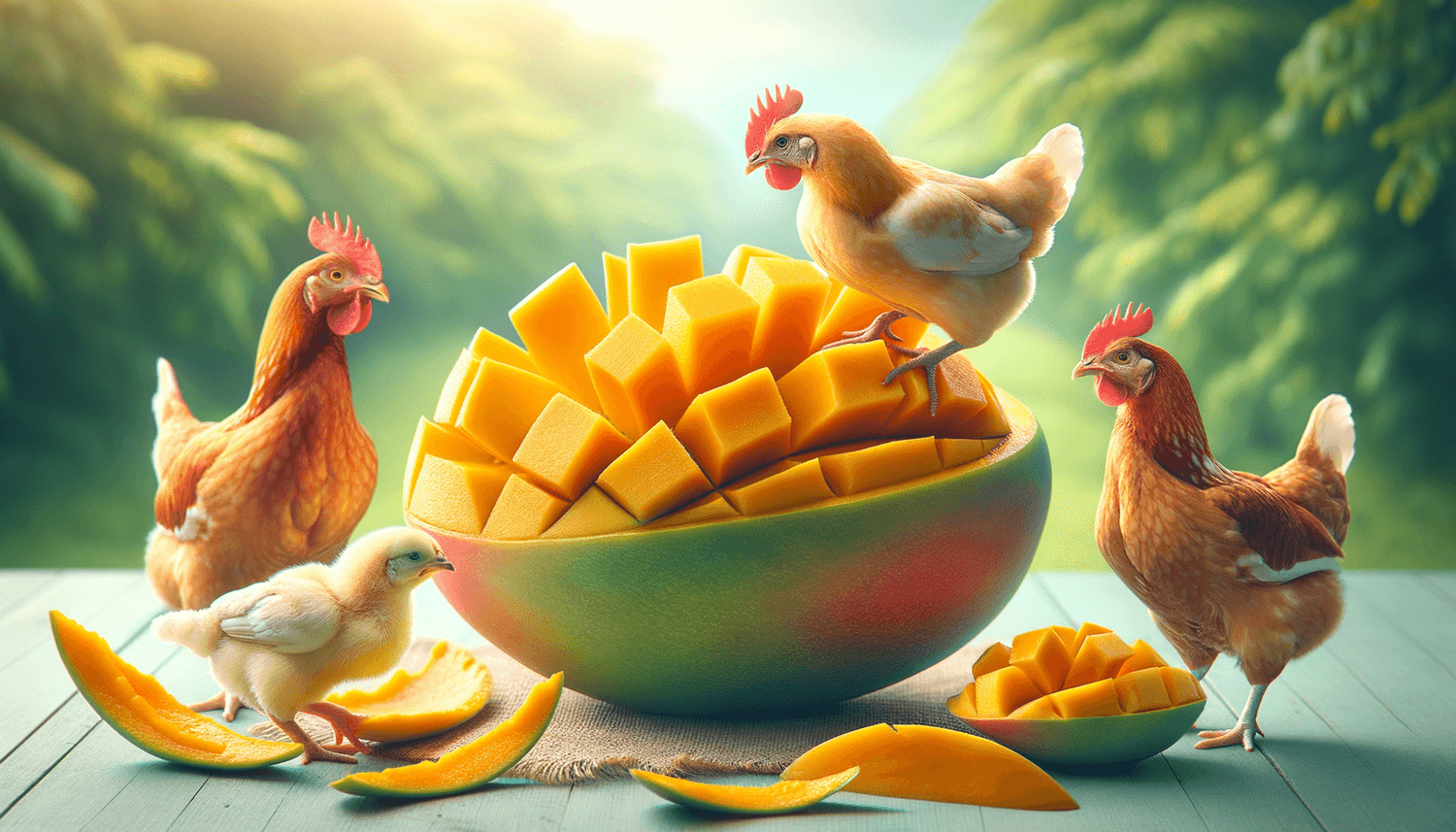“`html
Yes, chickens can eat mango peel, but it should be given in moderation. While the peel is not toxic to chickens, it can be tough and fibrous, which makes it difficult for them to digest. It’s important to wash the peel thoroughly to remove pesticides and cut it into small pieces to prevent choking hazards.
Quick Summary
- Chickens can eat mango peel.
- The peel is fibrous and hard to digest, but not toxic.
- Benefits include added vitamins and antioxidants, risks involve potential digestive issues.
- Feed in small, well-washed portions infrequently.
Overview of Mango Peel
Mango peel is the outer covering of the mango fruit. It contains small amounts of vitamins A and C, and dietary fiber. However, the peel is much tougher than the flesh and contains compounds like mangiferin, which can be beneficial to health but also challenging for chickens to break down.
Benefits and Risks of Mango Peel for Chickens
Mango peel can offer chickens potential health benefits due to its vitamin content and antioxidants. However, the risks lie in the peel’s tough texture, which can lead to digestive blockages or choking if not prepared properly. Additionally, mango peels may carry pesticide residues, which are detrimental to a chicken’s health, so they must be thoroughly cleaned before feeding.
Feeding Guidelines
To feed mango peel to chickens, always wash the peel thoroughly to remove any chemical residues. It should be cut into small, manageable pieces to aid in digestion and prevent choking. Offer mango peel as an occasional treat, not as a regular part of their diet.
Alternatives
If you’re concerned about the risks associated with mango peel, consider offering your chickens other fruits like berries, apples, or bananas. These are softer and easier for chickens to eat and digest.
Expert Opinions
Poultry nutritionists suggest that while fruit peels can be a healthy treat, the digestive system of a chicken is more suited to softer, easier-to-digest foods. According to veterinarian advice, moderation is key in feeding any treats to chickens to maintain a balanced diet.
Frequently Asked Questions
After reading about mango peels as a treat for backyard chickens, some common questions may arise regarding their safety and how to include them in a chicken’s diet:
Is mango peel safe for all chickens?
Mango peel is generally safe for all chickens when prepared properly. However, young chicks and smaller breeds might have more trouble with the toughness of the peel. Always monitor your flock to ensure they can handle new treats.
How often can I give my chickens mango peel?
Mango peel should be given sparingly as an occasional treat, not more than once a week. This ensures that treats do not make up more than 10% of their overall diet, which should be primarily composed of a balanced chicken feed.
Do I need to remove the skin from the mango peel before giving it to chickens?
No, you do not need to remove the skin from the mango peel, but you should ensure that the peel is free from pesticides and cut into small pieces to make it safer for chickens to eat.
“`

















